Sen Rubio Asks For Inquiry On Chinese Surveillance Firm Supplying Iran
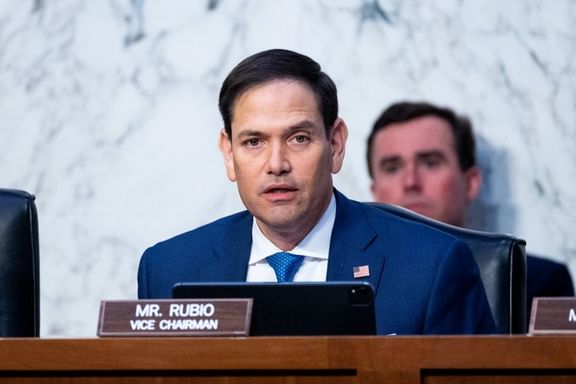
US Republican Senator Marco Rubio has asked the White House to look into reports that a Chinese firm is supplying Iran with technology that can be used against protesters.

US Republican Senator Marco Rubio has asked the White House to look into reports that a Chinese firm is supplying Iran with technology that can be used against protesters.
NBC news has reported that Tiandy, which is providing facial recognition technology to the Chinese authorities is also equipping the Iranian government with surveillance technology.
Sen, Rubio sent a letter to the Biden administration November 30, obtained by NBC, that the company’s dealings with Iran “raise serious questions about whether Tiandy’s products are being used against peaceful Iranian protesters.”
Human rights organizations say that Iran has killed more than 450 protesters since mid-September and imprisoned thousands, sentencing more than a dozen to death.
The company’s website shows that it has sold equipment to Iran’s notorious Revolutionary Guard and other security agencies, while Intel Corp. lists Tiandy as a partner providing its processors for some of the Chinese firm’s video recording equipment.
Sen. Rubio has asked the State, Treasury and Commerce departments to see if Tiandy has violated US laws against assisting organizations violating human rights.
“I request that you determine and report to the Congress whether Tiandy has engaged in conduct that may meet the criteria for designation pursuant to the authorities provided by Congress,” Rubio wrote.
While several Chinese surveillance firms are under US sanctions, Tiandy is not one of them. Experts say the company is one of the most dangerous among similar Chinese firms.
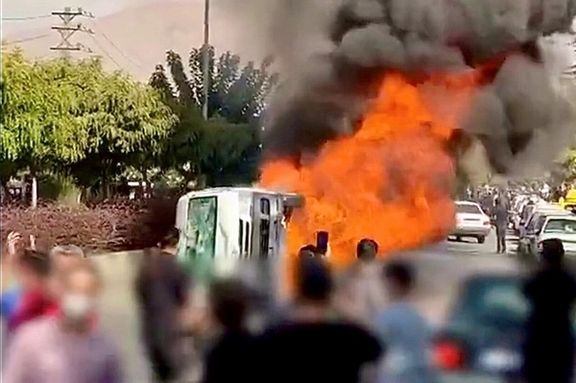
Islamic Republic's Supreme Leader and his loyalists have repeatedly claimed in public that anti-regime protests have ended, but in private they say otherwise.
Nonetheless, documents revealed by hackers who tapped into the database of the IRGGC-linked Fars news agency indicate that Ali Khamenei secretly told his inner circle and military commanders that an end to the protest is not in sight.
Meanwhile, according to the leaked audio file of a recent insiders’ meeting at the Basij Militia HQ focusing on the protests, a top IRGC commander has acknowledged that the protests continue to go ahead with full force.
Khabar Online, a moderate conservative news website in Tehran, in a report Wednesday probed into the continuity of the nationwide uprising in Iran and asked whether the Iranian government and Parliament (Majles) have a true understanding of the nature of the protests that have continued for some 75 days so far. The report also tried to shed light on why the use of force is the government's solution for all problems.
To put the bottom-line upfront, the report concluded that one of the main reasons for continuing protests is in fact the government and the parliament's lack of understanding of the situation. Even insider analysts over-emphasize the role of the current economic crisis as a driving force fueling public outrage. The article said that any good analysis should review the course of events in the past 25 years.
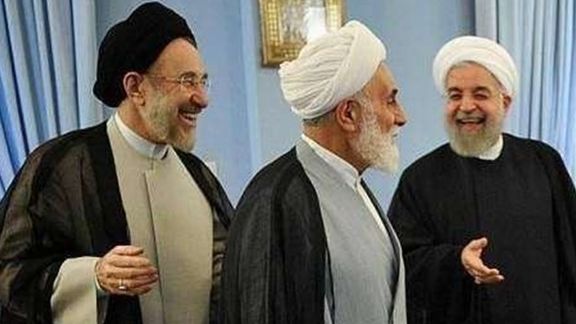
The reformist government that came to power in 1997 was unable to institute any political and economic reforms because hardliners obstructed all routes and created many crises for the government. In mid-2000s the government was handed over to conservatives who ruled out political reforms altogether. The nuclear program pursued by hardliners led to US and international sanctions against Iran.
Moderate Hassan Rouhani's victory in 2013 was aimed at eliminating grievances about the economic situation by bringing about a breakthrough in the nuclear issue, but hardliners played the same obstructive role with the resulting economic crisis fuelling protests in 2017-2019.
US-based sociologist Asef Bayat told Etemad newspaper recently that "The current protests have brought together the middle and lower classes as well as ethnic groups such as Kurds, Azaris, and Baluchis with the slogan of 'Woman, Life, Freedom'. This has given a new characteristic to the protests while at the same time concerns about women and their dignity are at the center of the movement." Bayat added, "It looks like the people are determined to take back their lost youth, lost life and lost joys and are looking for a decent, ordinary life denied by the government which has no idea about the powerful quest for normal life."
Bayat attached high importance to how Iranian women felt humiliated by the government, its compulsory hijab rule and its morality police as a factor in the protests. She said it was a similar humiliation felt also by men that brought them to the streets in protest.
Another Iranian sociologist, Yousef Abazari highlighted the emergence of a new generation that cannot stand the dictatorship of existing rulers.
The scholars said that because of all kinds of restrictions, and general mismanagement, society has left behind all peaceful stages and has entered a phase characterized by anger while the government's only solution is suppressing this anger. This, they said, can only deepen and strengthen the sulking between the people and the government

People in Iran’s Sunni city of Zahedan held big rallies Thursday to support their religious leader after a leaked audio revealed regime’s plan to defame him.
Earlier this week the hacktivist group Black Reward targeted the data servers of Fars news agency, a media network affiliated with the Islamic Republic's Revolutionary Guard, and released several documents to media indicating that Supreme Leader Ali Khamenei is dismayed by the remarks made by Mowlavi Abdolhamid, the most prominent religious leader of Iran's largely Sunni Baluch population living in Sistan-Baluchistan province.
However, the documents also revealed that instead of arresting or harming him, Khamenei ordered underlings to tarnish Abdolhamid’s reputation so that his influence would decrease among the Sunni population of the country, about 15 million people who are mainly Baluch or Kurd.
Abdolhamid's popularity is largely because of his willingness to challenge the absolute authority of Supreme Leader Ali Khamenei. Earlier in November, the outspoken Sunni Imam said women, ethnic and religious groups have faced discrimination after the establishment of the Islamic Republic in 1979. He was also brave enough to blame Khamenei for the attack on protesters in his hometown, Zahedan, known as the Bloody Friday. It took place September 30, when security forces killed close to 100 people.
According to videos and photos published on Thursday, the residents of Zahedan held a protest rally in support of Abdolhamid, carrying banners that read "Sheikh-ul-Islam is our red line" referring to the outspoken cleric.
The protests took place about two days after a group of Sunni religious leaders in several Baluch cities called on the Islamic Republic to stop its repression machinery used against protesters. In a joint video statement released on Monday, prayer Imams and religious scholars from Khash, Taftan, Mirjaveh and their neighboring towns decried the regime’s appalling attacks against the people of Kurdish majority cities, the killings on September 30 dubbed as ‘Bloody Friday’ in Zahedan, and a brutal crackdown of Khash residents on November 4, among others.
In November, Abdolhamid called for an internationally monitored referendum, saying by killing and suppression the government cannot push back a nation.
The Thursday protests in Zahedan took place as President Ebrahim Raisi visited the Kurdish city of Sanandaj, which has been the scene of fierce clashes between people and security forces since the Islamic Republic intensified its military presence in Kurdish-majority cities in western Iran. The fact that everyone in Iran is aware of the government’s ploy to sow division among the Sunnis, especially following the leak, apparently has not changed the regime’s plans at all as Raisi tried to pretend that he is popular among the Kurdish population. He even showed up at the city’s market and said prayers in a Sunni mosque, something that is unprecedented and frowned upon in a normal situation.
Of course, the situation is not normal for the Islamic Republic as universities across the country are employing extra security forces to quash student protests, which are supported by about 200 universities worldwide, and the international outcry over the regime’s crackdown on popular antigovernment protests is growing day by day. Moreover, the nationwide strikes by truckers as well as employees of numerous factories, especially in oil, gas, petrochemicals and steel industries, are garnering more support every day, crippling the country’s supply chain and exports.
Meanwhile, several grassroot groups have called for protests on December 5, 6, and 7. December 7 marks the anniversary of the 1953 murder of several students at University of Tehran and is traditionally considered a day of nationwide rallies in Iran.
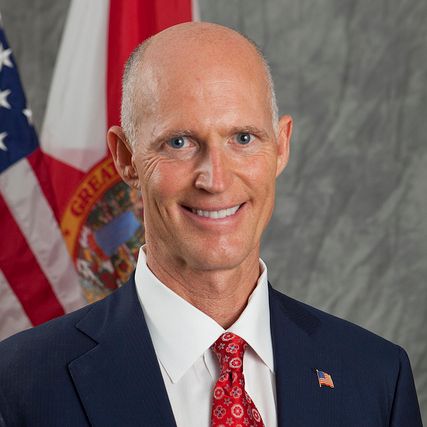
The Biden Administration does not care about Iranian protesters, a Republican Senator has said, while a Democrat demanded more action by the United States.
Senator Rick Scott of Florida told Iran International’s Arash Alaei that “We shouldn't be having any conversation with Iran other than on when are they going to stop killing their own citizens and stop trying to develop a nuclear weapon to be able to annihilate Israel.”
As he was asked to comment on the US response to popular protests and the killing of hundreds of civilians in Iran, he accused the Biden Administration of being indifferent. “I'm disgusted that Biden admin does nothing about it,” he said.
The administration has voiced support for the protesters and issued a series of sanctions against officials who are engaged in serious human rights violations.
Democratic Senator Tim Kaine saying that more should be done than just sanctions, expressed hope that Congress can act on it own to support Iranian protesters.
“There's a lot going on now between now and year-end, but I wouldn't be surprised if you see some action by Congress to express support for protesters,” Kaine maintained,
He added, “Dictators are realizing that people cannot be squashed permanently, and they're also realizing in Vladimir Putin's case that they cannot act with impunity and get what they want. Authoritarians are learning that they just can't dictate terms to people anymore.”
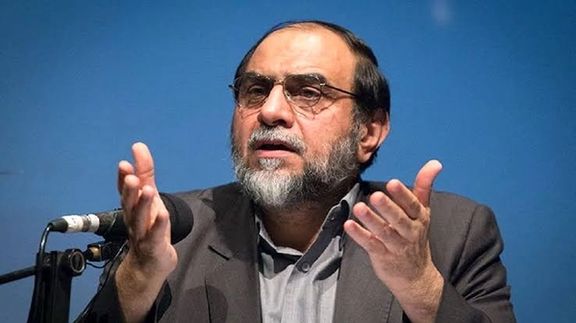
A member of Iran’s Supreme Council of the Cultural Revolution has acknowledged that the Islamic Republic has failed to achieve its desired religious ideological goals.
Ultra-conservative Hassan Rahimpour Azghadi said Thursday that the roots of the current protests lie in ideological and social defeats adding that “Despite having [control over] all the media, organizations, mosques and schools, we [the Islamic Republic] could not achieve the ideological goals.”
He went on to describe the recent protests across Iran following the death of Mahsa Amini in police custody as “an alarm before death.”
“When you neglect the wound the pain is felt and you need to take care of it,” added the Iranian official, implying that the regime needs to take difficult decisions to give concessions to the protesting people.
Since protests began against clerical rulers, many officials of the Islamic Republic have debated the root cause of the current situation in various speeches and writings.
Rahimpour Azghadi is regarded as a leading advocate of the ruling clergy and the ideology of a government controlled by the clergy in contrast with traditional Shiite thinking that favors keeping seminarians independent of the government.
Without an in-depth religious education, the conservative ideologue tries to mix conspiracy theories with theological assertions to support the establishment and its policies and provide it with a Shia ideological justification.
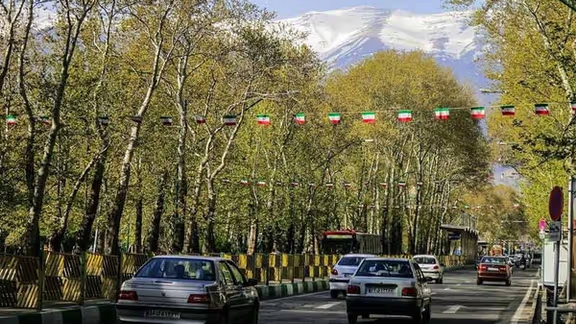
Iranian google map users could not believe their eyes when they saw the name of Tehran’s longest avenue, Valiasr, has reverted to ‘Pahlavi’, the last Dynasty in Iran.
The user-initiated change which people began noticing on Wednesday is not unprecedented. In August 2015 the name of the bustling street, which runs nearly 18 km from the south of the capital to north, reverted to Pahlavi for a short time. The state broadcaster IRIB reported the incident at the time and called it “Google’s mischief”.
Similarly, the name of Vozara hotel-apartment on Tehran’s Vozara street, now shows as Mahsa Amini Hotel Apartment, presumably because it was at the morality police headquarters on Vozara street that she had a stroke caused by blows to her head while she was being arrested. On social media there have been many calls to rename the street after her.
Google, however, may have nothing to do with the change, which supporters of monarchy in Iran have hugely welcomed. Although individual users cannot change city, town, village and street names on the maps, names can be altered using Google’s feedback feature of the maps if a large group of users report the names are wrong and suggest alternative.
Google maps may have become a new battleground where the opposition demanding regime change and the authorities and their supporters fight over street and even city names. Both sides have the means to fight the battle, but who wins will remain to be seen.
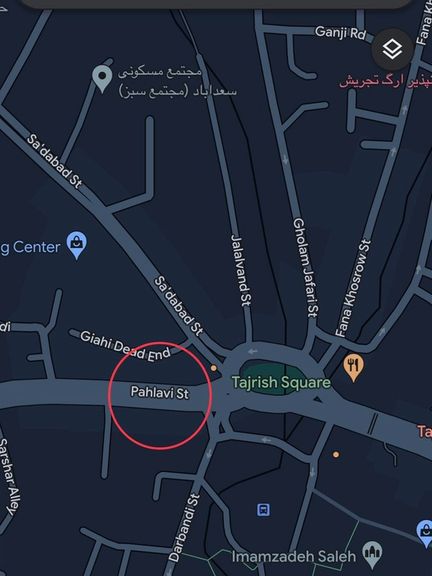
“This street was built by [Reza Shah] Pahlavi and its name will always remain Pahlavi,” one the many twitterati who welcomed the change wrote.
The boulevard, which is also the longest in the Middle East, has gone through several names since it was completed in 1933 after a construction period of eleven years. The tree-lined road with massive trees on both sides was originally called Pahlavi Avenue, after King Reza Shah Pahlavi, the founder of the Pahlavi dynasty.
Like many other roads and even cities and towns, the street was renamed after the Islamic Revolution in 1979. The first name chosen by revolutionaries was Mossadeq, after Mohammad Mossadeq, the former nationalist prime minister under the Shah who was venerated by many for nationalizing Iran's oil.
Two and half years after the revolution, when Islamists had consolidated their power in the country and completely driven nationalists to the sidelines, the road was once again renamed, this time to Valiasr, to reflect the change. Valiasr (vali-ye asr) refers to Imam Mahdi, an Arab descendant of Prophet Mohammad, who Shiites believers say has been in occultation since the 9th century AD.
In the coming years many other place names underwent similar changes. Most new roads, squares, and highways were named after historical and contemporary Islamic figures such as Sheikh Fazlollah [Nouri] (1843-1909).
Nouri was a Qajar period cleric and politician who was hanged as a traitor by revolutionaries during the Iranian Constitutional Revolution (1905-1911) for defending the old order and opposing constitutionalism and the establishment of a parliament. While the religious establishment venerates Fazlollah and calls him a shahid (martyr), to many ordinary Iranians to this day Fazlollah is a symbol of reactionary religious establishment because he supported the king’s coup against the constitutionalists and opposed modernization of the country.